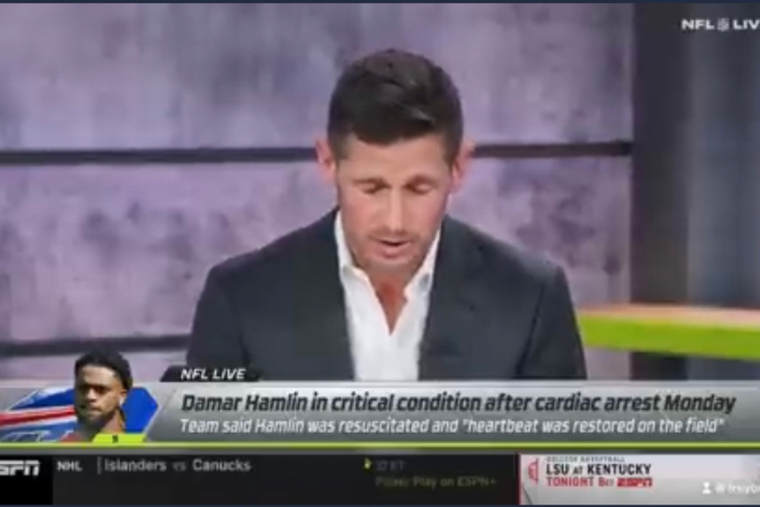Hello, old folks who are National Football League fans.
If you are a young reader and podcast listener, hang in there with me. I am going to work my way into a discussion of the fascinating and poignant explosion of public prayer and mass-media Godtalk that surrounded the stunning injury and recovery of defensive back Damar Hamlin of the Buffalo Bills. This was the hook for this week’s “Crossroads” podcast (CLICK HERE to tune that in).
The Big Idea? The “Pray For Damar” story got “out of control” because it happened on live TV. Hold that thought, as we begin a newsy flashback.
Back in the 1980s, NFL fans regularly saw something symbolic at the end of games, something so obvious that it even appeared in the background of sideline interviews on telecasts. What was happening? Players from both teams formed circles — often at the midfield logo — on their knees. Mostly, they offered prayers of thanksgiving for a safe game or prayers for anyone who was injured.
I remember that because I tried to write about this phenomenon during my Rocky Mountain News (#RIP) days. Team chaplains and parachurch leaders linked to this movement asked me, quite candidly, not to write about this subject — because it was so controversial with NFL officials.
Soon, TV images of the kneeling players vanished, although I believe that these rites continue to this day. But NFL fans no longer see them, unless they have tickets to the actual games.
In 1988, this topic broke into headlines during the media circus surrounding the Super Bowl. That was the year when I — prophetically, if I say so myself — wrote a memo to my editors detailing why I should be included in the Super Bowl coverage team. To be blunt, I argued that devotion to the Denver Broncos was so intense that it functioned as an organized religion.
Lo and behold, that was the year when the head coaches for the two teams, both outspoken Christians, unleashed a media storm by planning a two-team prayer meeting the day before the contest. I ended up assisting in the coverage — long distance, of course. The New York Times shock headline: “SUPER BOWL XXII; Rivals Will Pray Before They Play.”
Oh. My. God. Here’s the overture:
Most of the Denver Broncos and the Washington Redskins will join Saturday in a prayer meeting that is believed to be the first to bring together National Football League players from opposing teams on the eve of any game — much less a Super Bowl.




